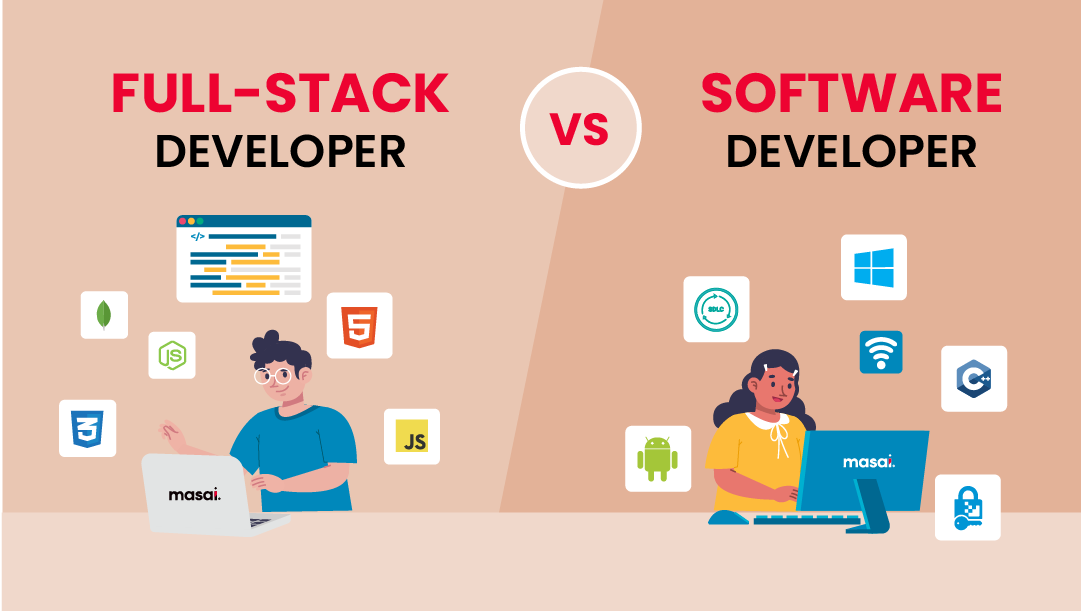Why Picking the Right Software Development Partner Can Transform Your Project
Why Picking the Right Software Development Partner Can Transform Your Project
Blog Article
Dedicated Developers vs. In-House Teams: Which Is Right for You?
The decision between making use of specialized developers and maintaining an in-house team is a significant one that can impact the trajectory of your projects and overall service method. Alternatively, in-house teams add to a cohesive company society and a nuanced understanding of lasting goals.
Comprehending Dedicated Programmers
The expanding demand for specialized abilities in the tech sector has brought about the introduction of devoted programmers as a viable option for lots of companies. These experts are commonly gotten on a task basis, allowing business to leverage specific expertise without the long-term dedication linked with full time hires. Dedicated designers are commonly embedded within a customer's group, supplying flexibility and scalability to meet job demands.
This version permits companies to access an international talent pool, which is particularly beneficial in a swiftly advancing technical landscape. Dedicated programmers can be sourced from different geographical areas, making sure that firms can find the ideal capability at affordable rates. They frequently bring a wealth of experience and understanding, having worked with varied jobs across different industries.
Furthermore, devoted programmers can concentrate specifically on the jobs at hand, boosting performance and efficiency. They are equipped to integrate flawlessly into existing operations, collaborating closely with in-house groups to attain task goals. This approach not only decreases the burden of employment and training but additionally allows organizations to remain agile, adjusting promptly to altering market demands and technical advancements.
Advantages of In-House Teams

Furthermore, in-house teams often tend to have a much deeper understanding of the firm's objective, worths, and goals. This alignment can boost employee interaction and motivation, as employee really feel more attached to their job and the company's success. Additionally, having a dedicated in-house team permits much better placement of purposes and techniques, as these members are consistently focused on the firm's concerns.
Internal groups also facilitate quicker decision-making processes, as they can react a lot more swiftly to changes and obstacles. The established relationships and experience with business methods permit structured operations and lowered miscommunication. Inevitably, the mix of a natural society, positioning with organizational goals, and reliable communication makes internal groups a useful possession for numerous companies, specifically those looking to grow long-lasting development and technology.
Cost Factors To Consider
When evaluating cost factors to consider, both specialized designers and in-house groups present unique monetary effects for companies. Engaging devoted designers typically involves a pay-per-project or hourly price model, which can be Web Site cost-efficient for companies with rising and fall job demands. This strategy permits for flexibility in scaling sources up or down, guaranteeing that companies only pay for the services they require.
On the other hand, internal teams require fixed expenses, consisting of wages, advantages, and overhead costs such as workplace area and devices. While this model provides greater control and instant accessibility of sources, it may cause higher long-lasting expenses, especially if the work does not warrant a full-time team.
Moreover, firms need to think about the surprise prices connected with recruitment and training of in-house employees, which can additionally strain budgets. In some instances, the moment and sources invested in taking care of an internal group can diminish the company's core business objectives.

Job Administration and Flexibility
Job administration and adaptability are critical factors that influence the choice between in-house teams and specialized developers. Devoted groups usually have actually established procedures for taking care of tasks properly, leveraging specific approaches like Agile or Scrum, which promote iterative development and versatility.

Ultimately, the choice in between in-house teams and dedicated designers hinges on the preferred level of flexibility and the particular project administration requirements. Firms must assess their functional characteristics, project complexity, and resource schedule to determine which choice aligns finest with their tactical objectives.
Making the Right Selection
Selecting the best advancement technique-- dedicated developers or in-house groups-- requires a mindful evaluation of various factors that line up with a company's tactical objectives. On the other hand, internal groups can give far better continuity and assimilation with existing workers.
Following, examine your budget plan. Devoted designers often offer a cost-efficient option for short-term projects, while in-house groups may sustain higher long-lasting expenditures as a result of salaries, benefits, and overhead costs. Analyze the degree of control and cooperation wanted; in-house groups generally promote more powerful look at here now interaction and placement with business culture.
If prompt results are necessary, devoted programmers can be onboarded swiftly, whereas building an in-house team takes time for recruitment and training. If continual growth is vital, spending in an in-house team may produce much better returns over time.
Final Thought
In final thought, the choice between internal teams and specialized developers hinges on task requirements and organizational goals. Alternatively, internal teams cultivate a cohesive culture and much deeper positioning with long-term objectives.
The decision in between using dedicated developers and keeping an in-house group is a substantial one that can affect the trajectory of your projects and total company strategy.Task management and flexibility are essential aspects that affect the choice in between internal teams and devoted designers. offshore software development.In comparison, in-house teams may excel in keeping a consistent task administration structure due to their familiarity with the company's society and long-term objectives. Devoted designers frequently provide a cost-efficient service for short-term projects, while in-house groups may sustain higher lasting expenditures due to wages, benefits, and expenses expenses.In final thought, the decision in between devoted designers and in-house teams pivots on project demands and business goals
Report this page